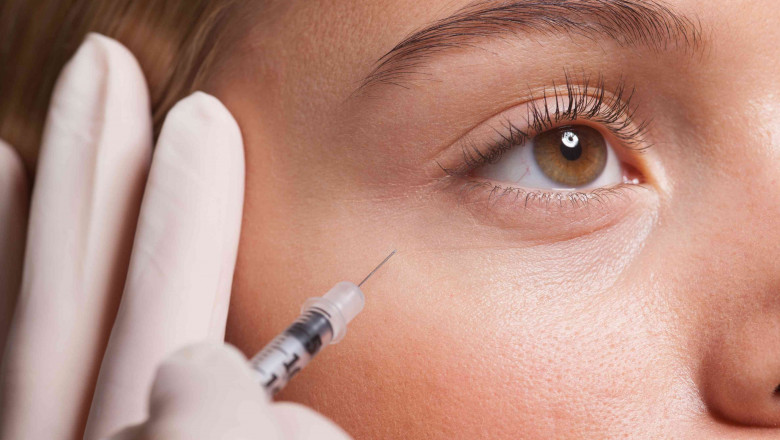views

5 Common Questions About Botox Injections
Botox is a toxin used to temporarily prevent a muscle from moving. While most people know Botox for its ability to reduce wrinkles and treat facial creases, this chemical has more uses in medicine. Botox is approved by the FDA, but many people still have a lot of questions and misconceptions about Botox injections.
If you are still concerned about Botox injections, below are some things to consider.
1. How does Botox work?
Botox is a botulinum toxin produced by specific bacteria. In high amounts, this toxin is poisoning and can cause serious health problems. But in smaller doses, it blocks certain chemicals and prevents the transmission of nerve signals. As a result, the muscle relaxes and cannot contract. The effect of Botox injection lasts between 3–6 months.
Because Botox is a toxin that prevents muscle contractions, it can be contraindicated for some people. Your doctor can refuse to give you Botox injections if you are pregnant because of the high risk of pregnancy complications. If you have a neuromuscular disease, uneven facial features, or serious skin problems, then Botox injections may not be suitable for you.
2. Why are Botox injections done?
Botox injections are commonly used to temporarily relax the facial muscles to improve the appearance of wrinkles. However, the benefits of Botox spread far beyond its ability to reduce cosmetic imperfections. It can also be used to treat the following conditions and health issues:
- If you have frequent migraines (more than 15 days a month), your doctor can recommend Botox injections. They help reduce the frequency and severity of headaches.
- Cervical dystonia is a painful condition that can be treated with help of Botox injections. This condition leads to neck muscles contractions and causes your head to twist in an uncomfortable position. Botox can relax neck muscles and improve your well-being.
- Lazy eye is a condition caused by a muscle imbalance responsible for keeping your eye in a particular position. Botox relaxes the muscles and helps keep your eye straight.
- If you suffer from excessive sweating (hyperhidrosis), your doctor can offer Botox injections in your armpit to reduce sweating.
- Botox injections can be used to reduce urinary incontinence associated with an overactive bladder.
- Some health conditions can cause painful muscle contractions. In some cases, Botox can help reduce these contractures and improve the quality of life.
3. What are the risks of Botox injections?
Botox injections are well-studied and safe when performed by an experienced plastic surgeon. But because this is a minimally invasive procedure that uses a toxin, it can cause several side effects. Some of the possible complications include pain, bruising, flue, headache, eye dryness, and droopy muscles.
Although very rare, the Botox toxin can spread within your body and cause more serious complications. You need to contact your doctor immediately if you experience vision problems, difficulty breathing, trouble speaking, or muscle weakness.
4. Does Botox differ from other fillers?
Both Botox and dermal fillers are minimally invasive procedures delivered through injection and used to treat wrinkles. Although these procedures have a similar result, they work in absolutely different ways. Botox blocks the nerve signals in the targeted muscle and prevents contractions. Because the muscle relaxes and cannot contract, the wrinkles and smooth lines in the particular area decrease.
On the other hand, dermal fillers are used to plump certain areas of your face that have lost volume. With age, your skin starts losing collagen and fat. As a result, the skin elasticity and smoothness decrease, causing the development of wrinkles. Fillers fill these areas and smooth out wrinkles and fine lines.
5. How to select a doctor for Botox injection?
It is extremely important to choose an experienced doctor for a Botox injection. In the hands of a poorly-trained doctor, Botox injections can be dangerous and cause serious complications that decrease the quality of life. Be sure to make an appointment with a certified doctor who is trained to perform minimally invasive procedures. This will help you minimize the risk of complications and get the desired final result.











